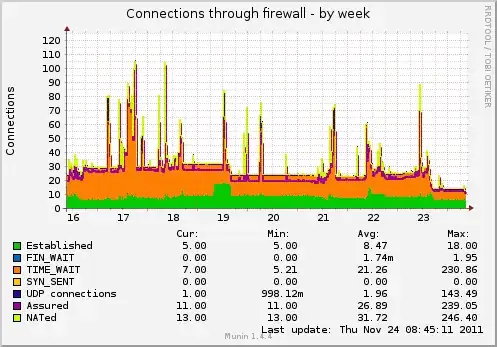SOME THEORY
I've been doing some reading on tcp TIME-WAIT (here and there) and what I read is that it's a value set to 2 x MSL (maximum segment life) which keeps a connection in the "connection table" for a while to guarantee that, "before your allowed to create a connection with the same tuple, all the packets belonging to previous incarnations of that tuple will be dead".
Since segments received (apart from SYN under specific circumstances) while a connection is either in TIME-WAIT or no longer existing would be discarded, why not close the connection right away?
Q1: Is it because there is less processing involved in dealing with segments from old connections and less processing to create a new connection on the same tuple when in TIME-WAIT (i.e. are there performance benefits)?
If the above explanation doesn't stand, the only reason I see the TIME-WAIT being useful would be if a client sends a SYN for a connection before it sends remaining segments for an old connection on the same tuple in which case the receiver would re-open the connection but then get bad segments and and would have to terminate it.
Q2: Is this analysis correct?
Q3: Are there other benefits to using TIME-WAIT?
SOME PRACTICE
I've been looking at the munin graphs on a production server that I administrate. Here is one:

As you can see there are more connections in TIME-WAIT than ESTABLISHED, around twice as many most of the time, on some occasions four times as many.
Q4: Does this have an impact on performance?
Q5: If so, is it wise/recommended to reduce the TIME-WAIT value (and what to)?
Q6: Is this ratio of TIME-WAIT / ESTABLISHED connections normal? Could this be related to malicious connection attempts?